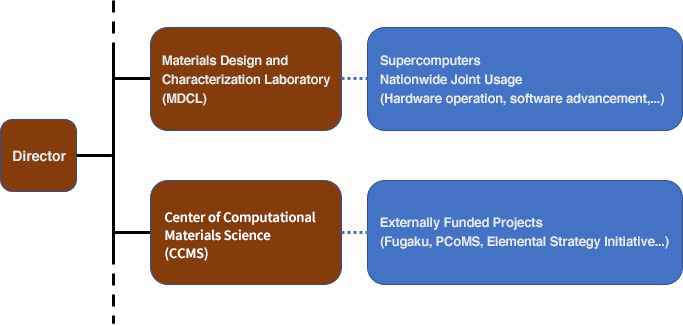About our Center

| Director |
Materials Design and Characterization Laboratory (MDCL) |
Supercomputers Nationwide Joint Usage (Hardware operation, software advancement,…) |
|
Center of Computational Materials Science (CCMS) |
Externally Funded Projects (Fugaku, PCoMS, Elemental Strategy Initiative…) |
Please refer to the external site for information on CCMS, which is our designated recipient of external funding for human resource development and purpose-specific projects.
The activities and achievements of our Center and the CCMS are also published in our annual brochures, which may be downloaded via the links below.
About the Joint Use of the Supercomputer Center
The Institute for Solid State Physics has been making available its supercomputers for nationwide joint usage since 1995. We offer
- fair operation
- high availability
- and a stable computing environment
as part of our joint usage policy.
Any researcher at a Japanese research institute can apply to use the ISSP’s supercomputers for a research project related to condensed matter science. If the application is approved, they may avail themselves of our supercomputer system free of charge. Applications are evaluated by unpaid experts in a peer review process. Applications are evaluated impartially in light of the research objectives and research content as stated in the application form. Most of the reviewers are experts unaffiliated with the ISSP, as are roughly half of the members of the Supercomputer Joint Usage Committee, which approves applications. The ISSP’s pillar of “fair operation” is made possible by this large number of volunteers.
